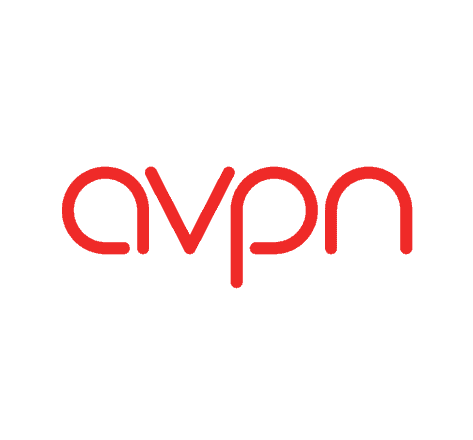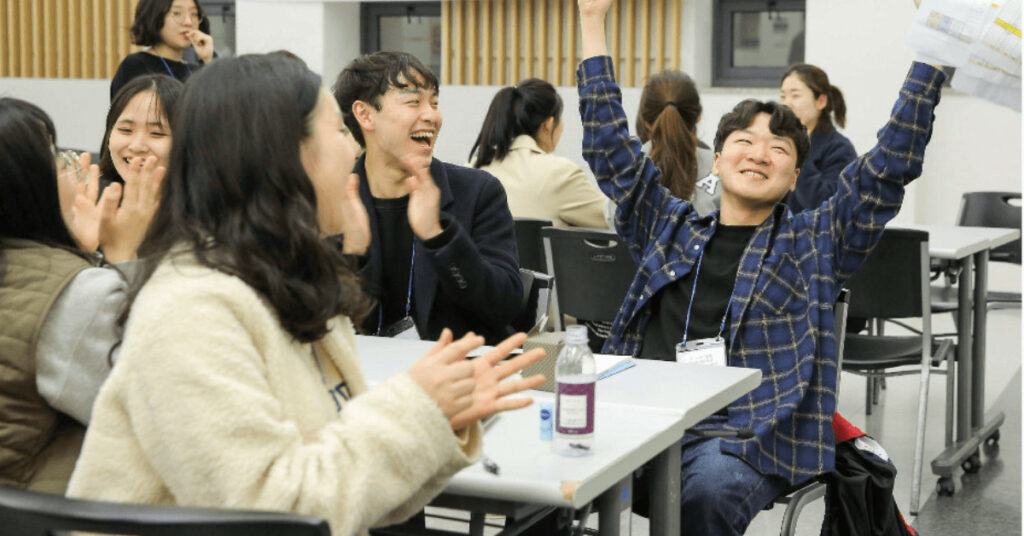6 mins read
With the support of Google.org, Google’s philanthropic arm, AVPN (Asian Venture Philanthropy Network) partnered with Merry Year Social Company (MYSC) to launch the USD 1 Million Digital Transformation Fund in 2021. The Fund aims to support non-profit organisations in South Korea to support small and medium business owners and job seekers from underserved communities who were affected by the COVID-19 pandemic. In 2022, five subgrantees were selected, and AVPN and MYSC are running an impact series to tell the stories of the subgrantees. In this second story, we are featuring JUMP, which is working to tackle widening education and digital gaps in South Korea.
The Power of Technology for Social Good
Jeong Beom, Myeong Sub and Jin Hyeong are three friends with a keen interest in Artificial Intelligence, majoring in AI Software at Semyeong Computer High School, South Korea. In February 2023, they had participated and won the first round of AI Friends School, a competition organised by non-profit JUMP, for students to utilise their AI knowledge and skills to address social issues.
The three friends came together as Team “Sebungi”, and their winning project – a software service that matches long-term missing children with their families based on facial and personal information (e.g. date when the child went missing, etc.), analysed with an AI model. Peers and judges alike were impressed by the effectiveness and potential of their solution, where the possibility of reuniting long-separated families and loved ones is very enticing.
“I really enjoy coding, creating models and tinkering with it to solve various problems. Being in a team is way different from working solo, as you may not agree with your teammates all the time and have to work things out. In the end, it was a worthwhile experience and I learnt a lot about the potential of AI”, Jeong Beom comments.
Meyong Sub further adds, “it was challenging working together. At the start, we often had disagreements because we could not communicate well, on top of the pressure from the competition. Nevertheless, it was a great learning experience, I had a lot of fun, and above all, receiving the grand prize turned those stressful moments into joy”.
Jin Hyeong says, “I really enjoy talking about artificial intelligence, a topic I plan to study further. Through the competition, I realise that there are so many major issues in the world, from small to large, and it makes me sad that many such issues go unsolved. So I’m going to look at the world with a broader perspective, looking into things like the Sustainable Development Goals (SDGs), Environment, Social, Governance (ESG) and apply those in what I do”.
Team Sebungi and other participants in the AI Friends School Competition had learned and discovered the power of leveraging technology for good. However, South Korean society still faces major digital education challenges and widening knowledge gaps.
The Digital Education Gap, exacerbated by COVID-19
In South Korea, employers’ requirements continue to grow and evolve, as they seek to adapt to an ever-changing business environment in one of the world’s most digitised economies. Yet, 79% of students from specialised high schools report being unable to find suitable employment after graduation. With the huge gap in digital competency due to unequal access to such education and training, many more may already be disadvantaged even before they begin their careers.
The problem goes beyond just students. Middle-aged job seekers are finding it increasingly difficult to seek employment without requisite digital skills, being displaced by younger, more educated digital native workers. Opportunities exist for workers in transition to undertake digital upskilling, but the costs of such programmes could be expensive, a hurdle for individuals already in strained financial situations. COVID-19 and the global shift to remote work has caused many of such job seekers to feel isolated and ever more helpless in their situation.
Furthermore, Small and Medium Businesses (SMEs) also struggle to digitalise. This is especially so as many businesses rely on non-digital means running many aspects of their business. COVID-19 had been a further bane, pushing the SMEs to make a digital pivot, or find themselves out of business.
In the face of these challenges, Civil Society Organisations are stepping up to help those in need, and JUMP Korea is working hard to ensure no one gets left behind.
Bridging the Digital Divide: Introducing JUMP
JUMP is a non-profit corporation that dreams of a society where everyone has equal opportunities to grow and learn without discrimination. Established in 2011, it has been working on various programmes to bridge educational gaps, which they see as a major force for economic and social polarisation in South Korean society.
While they had organised the AI Friends School competition, JUMP’s work goes much deeper. Their business and operating model connects teenagers and youths with mentors from all walks of life, in a virtuous cycle of learning and development. All parties work to motivate and grow alongside each other. For the past decade, 4,946 young adult volunteers have guided and mentored 17,001 teenagers, and 580 mentors of society supported the growth and change of these teenagers and young adults. JUMP actively partners with other ecosystem actors (e.g. government bodies, businesses, schools, foundations, social ventures) to create a society where future generations can dream and grow.
In mid 2023, JUMP is rolling out their programme for local farmers to leverage digital tools such as Internet-of-Things (IoT) to increase the productivity and efficiency of their farming operations. Education on these digital tools is key to ensure that all beneficiaries can utilise the tools to the fullest extent.
Concurrently, they will be running a Digital Upskilling Training Programme for job seekers, helping individuals that are planning to transition to jobs in the field of IT. Individuals will go through practical, hands-on training for planning, designing and producing web and application services, alongside basic knowledge on AI. From this, they can get their foot into the door as they enter the digital workforce.
Support needed for South Korea’s Philanthropic Ecosystem
While JUMP and other organisations continue to do amazing work, much more support from philanthropists, funders and ecosystem actors is needed to ensure changemakers like JUMP can continue their mission to transform the society. JUMP is one of the five impact organisations who received a grant from the AVPN Digital Transformation Fund, which was implemented in partnership with Merry Year Social Company (MYSC) and with the support of Google.org. The fund focused on providing flexible funding for nonprofits in South Korea that support underserved communities, including small and medium business owners, job seekers affected by Covid-19, etc. and looking to reskill for the new digital economy.
The funding enabled JUMP to roll out the programmes described, and the flexible nature of the fund enabled them to more easily pivot and change their approach to suit evolving needs of the communities they serve, without unnecessary administrative red tape.
“Most local nonprofits in South Korea run their activities with limited funding and are constantly hindered by excessive constraints on use of funds, weakening our ability to carry out impactful work,” the JUMP project team comments. “However, through this flexible funding, we were able to collaborate with good external partners and our members to provide the right education that our beneficiaries need. Based on the needs of the future, JUMP will continue to focus on providing various educational programmes for local youths and teenages in need”.


















